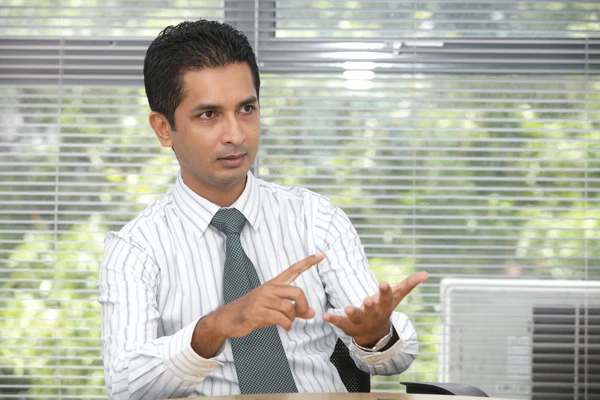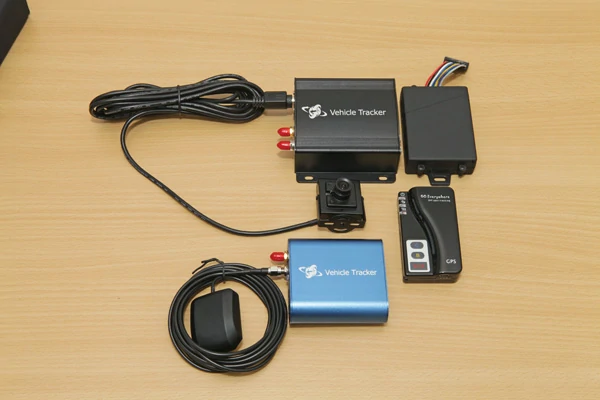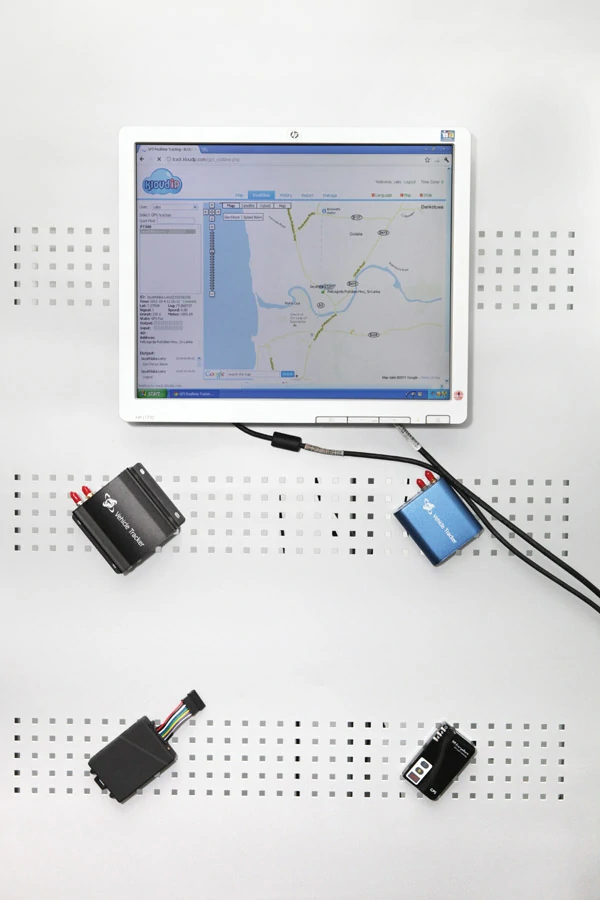
Vence, the provider of IT power solutions and internet based communication solutions, is about to provide consumers with another technological advancement that will make life easier and more efficient. Its newest venture is to introduce an affordable, user friendly GPS (Global Positioning System) tracking system that can be used by both organisations and private individuals alike. GPS (Global Position System) satellite tracking is commonly used in many countries but is still something of a rarity in Sri Lanka. But this may be about to change. Sanjeeva Cooray, Managing Director of Vence outlined the details of this tracking system and the plans that Vence has for the future.
By Chiranthi Rajapakse
Photography Indika de Silva
The satellite based tracking solution marketed by Vence consists of a compact box shaped tracking device small enough to be kept in the pocket. Personal trackers are available as well as tracking devices for vehicles. The customer using the system is given the tracking device and a login account. In order to check the location of the device the customer simply has to go online, access the relevant website, and enter their user name and password. This will take them to a screen which shows the location of the tracking device and they can thus locate the vehicle (or person) which they wish to track.
“For Example If The Password Is Given To Ten Employees In An Organisation Then All Ten Can Simultaneously Monitor The Vehicle,”
Sanjeeva Cooray explained that one of the benefits of this system is that the client does not have to invest in expensive servers or installation of software. “Up to now, even though GPS tracking systems were available, the high cost of the equipment meant that it involved a lot of capital expenditure. We have come up with a way of providing this solution without the consumer having to incur a high capital expenditure. The consumer only has to pay a Rs 10,000 refundable deposit, and a small charge of Rs 750 per month for personal trackers and Rs 1,000 rupees per month for vehicle trackers. There are no other costs for the consumer”.
The system of monitoring through a central server, also provides other advantages. Since the monitoring is done online any number of people can log in and track vehicles as long as they have access to the user name and password. “For example if the password is given to ten employees in an organisation then all ten can simultaneously monitor the vehicle,” said Cooray. Alternatively if a company wishes different vehicles to be monitored by different employees, different login can be assigned, thus controlling access to the information. Since the monitoring can be done from any computer that has online access, it does not matter whether the customer is in Sri Lanka or overseas.
Different devices are available for different types of vehicles, with even water proof devices being available for motor cycles. Since the system is a satellite based system, there is coverage of the whole island and tracking can be done regardless of where the vehicle travels to.
Cooray pointed out that this application will help companies to manage their vehicles more efficiently and thus save on fuel costs. Apart from tracking the location, the device also records other data; the fuel consumption, distance travelled, the locations where the vehicle stopped and the number of times the vehicle stopped can all be recorded and the customer can access these reports through the online site. Another concept called ‘geo fencing’ is also useful for monitoring. This marks the territory in which a particular vehicle should travel; if the vehicle travels out of this limit a notification will appear on the tracking system and an alarm will sound, for example the vehicle horn will beep. These measures will help an organisation to manage its vehicles productively and minimise costs while saving time. It’s visualised that these applications will be particularly useful for sectors such as cab companies and leasing companies. Insurance companies will also benefit; for example this application will allow the company to check the speed at which a vehicle was traveling.
The personal tracking device also has an SOS button; if the user is in an emergency situation he or she can press the SOS button to dial a designated number. The units are equipped with built in batteries and cannot be deactivated easily.
Apart from its uses in the corporate sector, these devices are also useful for personal use. The personal trackers can be used to monitor small children and Vence plans to put out devices that can be fixed to a dog collar, thus allowing pet owners to monitor their dogs and locate them easily if they get lost. Since the system works through satellite coverage it can even be used to monitor boats at sea. Cooray emphasised that since the technology is handled by Vence there is minimum inconvenience for the consumer. He pointed out that since the information is stored on a central server the security of the information is also ensured.
Vence has been involved in the field of power protection and backup which is a vital element of information technology (IT), for more than 20 years. Cooray explained that from this sector Vence expanded into complete IT infrastructure management, in which the company now specialises. As its next project Vence is planning to introduce the concept of micro navigation on their KLOUD based IT Infrastructure management platform.
In conclusion Cooray emphasised that the tracking system works not by providing servers or hardware but by providing a solution on the KLOUD platform that ensures the job is done properly, with minimum investment and commitment for the customer. Stated Cooray, “The customer doesn’t need to worry about hardware or about maintaining systems or any other back office complications since we take care of that aspect. Our focus is on providing them with the best solution as a service.”







